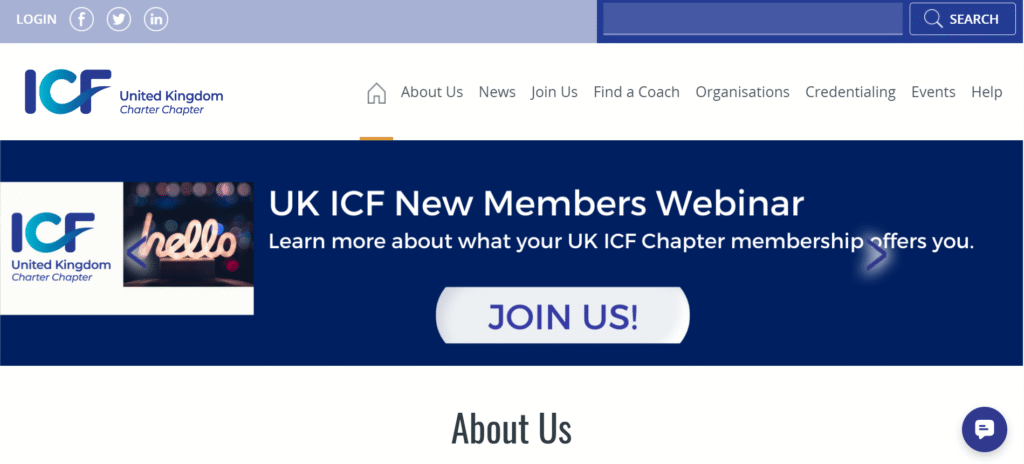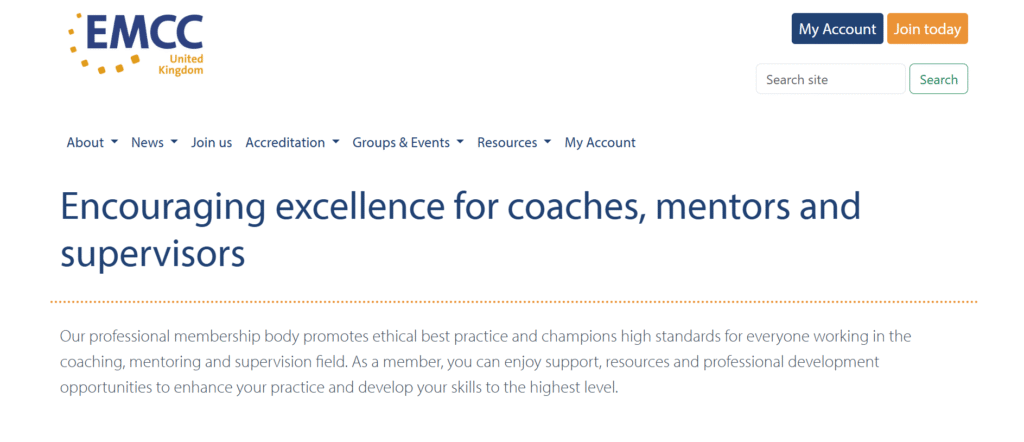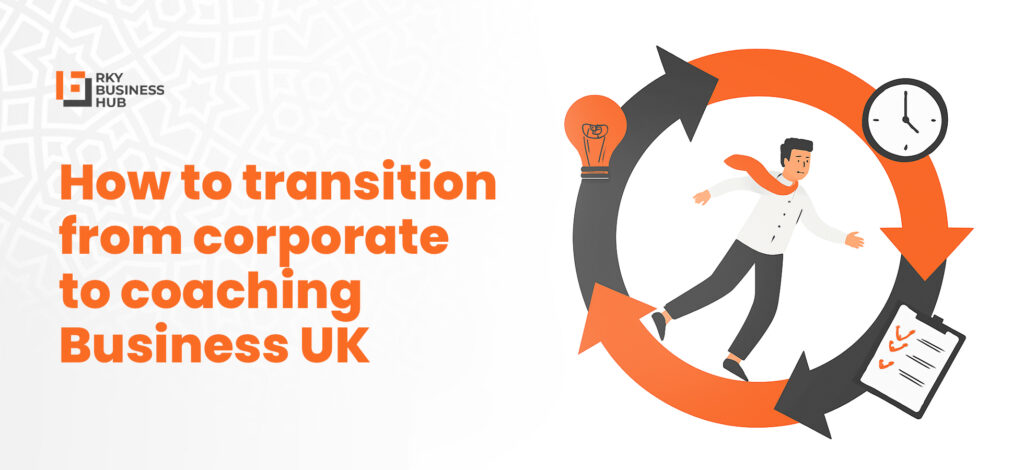Are you a founder who want faster growth? Then you might need to hire a Business Coach in the UK to get a clear strategy, weekly accountability, and practical steps that actually move your business forward.
Coaching shortens learning curves and cuts costly guesswork. Instead of spinning your wheels, you test small ideas, measure what matters, and scale what works.
Founders have pivoted from stall to steady sales after focused coaching and simple systems. If you’re an entrepreneur, startup founder, or business-minded leader, this guide gives the how-to, the places to look, and thoughtful questions to ask.
You’ll get concrete next steps to try this week and a straightforward plan to pick the right coach and start today.
Why Hire a Business Coach in the UK?
SMEs represent 99.8% of UK firms and account for about 60% of employment, which means support like coaching is crucial for many founders.
If you are uncertain about growth or looking into career growth strategies, it’s worth learning why leaders hire a Business Coach in the UK. Coaches shorten your learning curve, cut costly mistakes, and help you focus on revenue drivers.
Think about it: coaching gives weekly structure, expert insight, and practical tools. As a founder, you get tailored steps and accountability. Best of all, coaching helps you start small experiments and scale what works, so you waste less time, protect cash flow and see measurable results.
Boosting Growth and Scaling Your Business
When growth is the go, then it is a good time to Hire a Business Coach in the UK to show you the highest-leverage moves and help you build repeatable systems. A good coach tests pricing, tightens your sales process, and focuses marketing where customers convert.
Instead of guessing, you run small experiments with clear success metrics and that removes noise and speeds meaningful results. Coaching also helps you hire the right first team members and set KPIs that protect cash flow.
You learn to scale without burning out because the coach keeps the plan realistic and measurable. Coaching turns vague ambition into weekly tasks that add up to real growth. Additionally, you gain the soft skills you need to achieve career growth.
You might increase conversion, raise average order value, or retain customers longer. These are three levers that fund sustainable scale quickly.
Gaining Clarity in Strategy and Operations
Clarity is the difference between busy work and meaningful progress. A coach helps you map long-term goals to three-month priorities and weekly actions.
Without clarity you chase distractions, but with clarity, you focus on customers, cash, and conversion. Founders are often advised to build a one-page plan that shows revenue drivers and resource needs.
Then create a simple dashboard tracking cash, leads, and conversion rates. By the way, clarity reduces stress because you always know the next step.
For example if you are trying to launch a product, you trade random tasks for a plan you can communicate to partners or your team.
As a result, execution becomes smoother, and decisions get easier, which leads to faster progress overall. Identify your top customer segment, experiment with a pricing test, and measure lift over four weeks to choose the best path forward right now.
Accountability and Performance Tracking
Accountability turns plans into done items. When you Hire a Business Coach in the UK you get help to set clear milestones and progress check each week.
That structure keeps small tasks from becoming big delays. Coaches teach simple reporting: show three metrics that explain whether a project is working.
Then review them with a short agenda and action points. Founders who adopt this habit finish more projects and move faster because regular reviews expose issues early and let you pivot without panic.
Also, coaches help you break big goals into tiny steps so you win often. Get this: consistent tracking makes progress visible, fuels momentum, and builds confidence that you can scale sustainably.
Track cash runway, customer acquisition cost, and lifetime value weekly; then adjust marketing spend, hiring plans, or product priorities based on those simple signals to protect growth today.
Read Also:
- Discover How To Successfully Transition To Tech In 2022
- How to Research UK Employers Before an Interview
Types of Business Coaches Available in the UK
The coaching industry is sizeable: the ICF estimates 109,200 practitioners globally and $4.564bn in annual revenue, reflecting the wide availability of trained coaches.
Coaches come in many flavours: startup guides, executive mentors, and specialist advisors in finance, marketing, or sales. Choosing the right type depends on your stage and goals.
A startup coach helps you test offers quickly, while an executive coach works on leadership and board readiness. Specialists close specific skills gaps fast.
Before you commit, list your main problems and match them to the coach’s strengths so you pick someone who delivers real impact within a practical timeline now.
Startup Business Coaches
Startup coaches specialise in early validation, quick experiments, and finding product-market fit. They help you design minimum viable tests, ask customers the right questions, and interpret results with clarity.
Think of them as practical partners who force you to choose the riskiest assumptions and test them fast. That saves months of wasted effort and thousands in avoidable costs.
Startup coaches often teach pitch basics and fundraising readiness while helping you prioritise user feedback. They also suggest tools for low-cost testing and simple metrics to watch.
The advantage is speed: faster validation leads tomore rapidr learning, and faster learning increases your chance of building a business that customers actually pay for and keep returning to.
And you gain concrete next steps each week and measurable evidence to show partners or early customers that your idea works.
Executive and Leadership Coaches
Executive coaches work with founders and senior teams to improve decision-making, influence, and strategic clarity. They use assessments, feedback, and stretch assignments to change habits and raise performance.
Leadership coaching is about long-term behavioural shifts rather than quick fixes. Good coaches help you delegate effectively, manage stakeholders, and balance short-term pressure with long-term strategy.
They also support high-stakes negotiation, investor conversations, and succession planning. Coaching helps leaders reduce stress, improve team retention, and communicate vision clearly.
As a result, organisations become more resilient and scale more predictably because leaders make better choices under pressure and design teams that can execute the strategy reliably over time.
An executive coach might guide you through a six-month plan to restructure decision rights and build a leadership cadence. You also learn to set career development goals and improve board communication to unlock growth and increase stakeholder confidence.
Specialist Coaches (Finance, Marketing, Sales)
Specialist coaches focus on one area and deliver practical playbooks you can implement quickly. A finance coach builds cashflow models, unit economics, and investor-ready forecasts. A marketing coach creates content calendars, funnels, and tracking that show clear ROI.
A sales coach sharpens pitch scripts, demo flows, and closing techniques. Those targeted fixes often yield fast wins because they address the real bottleneck. In other words, use specialists when a single area blocks growth.
They come with templates, audit checklists, and measurable tests to run. Then you measure lift and decide whether to embed the change permanently or iterate further, which makes scaling safer and more predictable.
A finance audit might reveal pricing leaks that increase margin by several percentage points. At the same time, a sales optimisation could shorten sales cycles and raise conversion, funding faster hiring and reinvestment today too.
Check Out:
- How to Use LinkedIn for Career Advancement
- How to Balance Your Job Search with Other Responsibilities
How to Choose the Right Business Coach UK
Choosing the right coach is about fit, evidence, and follow-through. Check credentials, case studies, and client outcomes.
Ask for a sample session and clear start-to-finish plans. Consider coaching style: directive or discovery-led? Match that to how you work. Also, compare packages, follow-up support, and network access.
Remember: chemistry matters as much as experience, so test before you sign and be clear about expected outcomes. If they offer visibility perks or templates, that can speed your results and boost ROI quickly.
Checking Credentials and Experience
Start by checking certifications, case studies, and client outcomes. Credentials like ICF or EMCC signal formal training, but results matter most. Ask for two recent case studies with measurable impact, and request references you can speak to.
In a discovery call, ask how the coach measures success and what happens if targets are missed. Check LinkedIn endorsements and look for client testimonials that include metrics.
Evaluate longevity: how long do clients stay with the coach, and what follow-up support is provided?
A glossy website is not proof of impact. For example, ask for a brief ROI example, such as increased revenue, reduced churn, or faster product launches that the coach helped a client achieve within months.
Industry Knowledge and Coaching Style
Industry knowledge speeds problem-solving because sector-specific challenges need tailored solutions. A tech founder needs different playbooks than a retail owner.
Check coaching style: do you want a directive coach who assigns tasks or a reflective coach who asks questions? Match style to your personality and how you work.
Some coaches provide templates and done-with-you support; others offer guidance and leave execution to you. Ask for a sample session to check chemistry and pace. If you prefer clear task lists and deadlines, pick a coach who gives homework and templates.
On the other hand, if you need space to explore strategy, choose someone who helps you uncover priorities through reflection and probing questions.
In short, industry fit plus compatible style equals faster results and less friction when implementing changes across your team and operations in the months ahead.
Cost vs Value of Coaching Packages
Price varies from hourly rates to high-ticket packages. Don’t pick on price alone; compare what’s included, session frequency, and post-program support. Calculate expected ROI: how much additional revenue or time saved will the coaching generate?
A package that includes done-with-you assets, visibility, and follow-up calls can pay for itself quickly if it shortens your launch time. Also consider flexible payment plans and scholarships.
Cheap hourly advice can be helpful, but packages often create structure and accountability that deliver better outcomes.
Ultimately, choose the option that aligns with your goals and gives measurable outcomes you can track over time, and treat coaching as an investment in predictable growth.
If cost is a concern, test with a short advisory session, measure immediate gains, and then upgrade to a complete package when you see clear progress and early returns today too.
See Also:
- Transitioning to a Fulfilling Career: Strategies for a Successful Career Transition
- Top Ten Highest Salaries in the UK
Where to Find Trusted Business Coaches UK
In 2023 the Bank supported 23,100 smaller businesses, evidence that meaningful funding and support routes exist for founders who are ready. This why you must be ready and properly equipped with the right knowledge.
Look for accredited lists, platforms, and referrals. Start with ICF and EMCC directories to find vetted professionals.
Use LinkedIn and coaching marketplaces to shortlist candidates. Ask peers for recommendations and attend events to meet coaches in person. Always schedule discovery calls and request references.
This approach reduces risk and speeds the decision process so you work with someone who understands UK rules, markets, and funding options. Book trial sessions, compare outcomes, and choose the coach who fits your timeline today.
Professional Coaching Associations (ICF UK, EMCC UK)
Professional associations like ICF and EMCC set standards. They list accredited coaches. They offer directories and filters:

ICF UK: The International Coaching Federation chapter for the UK. It verifies coach training, issues accreditation levels, and promotes ethics and continuing education. Use ICF listings to check credential level, mentor coaching history, and hours logged.

EMCC UK: The European Mentoring and Coaching Council in the UK. It focuses on professional standards, validated supervision, and competency frameworks. EMCC listings often include supervision credentials and practitioner development details.
Professional associations like ICF UK and EMCC UK make it easier to find accredited coaches. Use their directories to filter by speciality, level, and location. Both bodies let you Find a Business Coach UK by speciality and accreditation.
Ask shortlisted coaches for case studies and references. Using vetted directories lowers search time and reduces risk for busy founders.
Online Directories and Coaching Platforms
Online directories and marketplaces let you filter coaches by specialty, price, and reviews. Use LinkedIn, platform search tools, and coaching marketplaces to compare profiles quickly. Although Having A LinkedIn Profile is Important,a polished profile does not guarantee results.
Always cross-check testimonials, ask for a clear example of impact, and schedule short discovery calls to test chemistry. Platforms make booking easier and provide client feedback for context.
Look for coaches who publish case studies or content that demonstrates their approach. If you shortlist three candidates, run three short trials to compare results and fit.
Use platforms to speed search but rely on evidence and conversations to confirm the coach can deliver the specific outcomes you need for your UK business and market today too.
Recommendations and Networking Events
Referrals are high-trust ways to find coaches who actually deliver. Ask founders you respect about the coach’s follow-through, style, and measurable outcomes. Attend industry meetups, and webinars to Network for Career Advancement.
Also, join demo days to hear coaches speak and observe their approach.First-hand interactions give clues about chemistry and practical methods. When someone recommends a coach, follow up with specific questions: what changed, how quickly, and what evidence exists?
Use events to create a shortlist and then run discovery calls to test fit. Peer recommendations often reveal strengths and weaknesses that profiles hide, so lean into them while still doing your due diligence before committing to a package or retainer.
Ask whether a recommended coach helped a founder secure customers, hire a first employee, or prepare a successful funding pitch and request proof or short metrics that demonstrate the change right away today.
Read Also:
Alternatives to Hiring a Business Coach in the UK
If coaching is out of reach, consider online courses, mentorships, or mastermind groups. Courses teach skills cheaply and on your schedule. Mentorship programmes pair you with experienced founders who give guidance and shorter-term advice without the full structure of coaching.
Masterminds provide peer accountability and diverse perspectives. Each option has trade-offs: lower cost but less tailored action and weaker accountability.
Mix options: learn skills from courses, get feedback from mentors, and join masterminds for accountability as you prepare for later coaching. These choices help you progress until you can invest immediately.
Online Courses and Mentorship Programmes
Online courses teach specific skills like marketing funnels, bookkeeping, or product validation at low cost. Mentorship programmes pair you with experienced founders or specialists for targeted advice and can also help you gain Networking Tips for Expats in the UK
They can be great when you need a one-off fix or practical training without full coaching structure. However, courses often lack tailored accountability and personalised strategy. Mentors offer feedback but may not provide regular check-ins or structured action plans.
Mixing options works well: learn frameworks from courses, get feedback from a mentor, then use coaching to scale the channel once it proves profitable.
For example, take a short course to learn a funnel, get a mentor to review your campaign, then use coaching to scale the channel once it proves profitable.
Peer-to-Peer Mastermind Groups
Mastermind groups are peer-led gatherings where founders share progress, challenges, and feedback. They provide collective wisdom, accountability, and fresh perspectives without high coaching fees. Success depends on member quality, commitment, and facilitation.
A well-run mastermind has clear rules, confidentiality, rotating hot seats, and measurable objectives.
Members might test pricing ideas, review sales scripts, or critique product messages and then report back with results. The advantage is multiple viewpoints and ongoing support that keeps you on track.
However, masterminds are not substitutes for deep, personalised coaching when behavioural change is needed; instead they complement coaching and can be a lower-cost way to maintain momentum between coaching cycles.
If you join a mastermind, pick one with diverse experience, clear outcomes, and a facilitator who ensures action and follow-up so you get measurable progress and avoid looping without results today too.
FAQs
How much does it cost to hire a business coach in the UK?
Costs vary: short advisory sessions cost from a few dozen pounds while full packages range from hundreds to several thousand. Compare inclusions, outcomes, and ask for trial sessions.
What results can I expect from working with a business coach?
Expect clearer priorities, faster learning, and improved execution when you follow the plan. Specific results depend on commitment, goals, and metrics tracked.
How do I know if a business coach is qualified in the UK?
Check ICF or EMCC accreditation, request case studies, speak to references, and run a short discovery session to test fit and evidence of impact.
Can business coaching be done online or is in-person better?
Coaching works well online and in person. Choose based on convenience, budget, and the level of hands-on work you need.
Grow, Scale, and Succeed with RKY Business Hub

Running a business comes with challenges, strategy, growth, leadership, and accountability. That’s where RKY Business Hub steps in. We provide business coaching and consultancy services designed to help entrepreneurs and business owners in the UK clarify their goals, improve performance, and drive sustainable growth.
Our services include:
- 1:1 Business Coaching: Personalised sessions that focus on mindset, leadership, and business growth strategies.
- Startup Mentorship: From business planning to execution, we guide you through every step of your entrepreneurial journey.
- Strategy & Operations Consulting: We help you streamline processes, improve efficiency, and achieve measurable results.
- Team Development Workshops: Build a motivated, high-performing team aligned with your vision.
At RKY Business Hub, we don’t just coach, we partner with you to transform your business into a brand that thrives.


